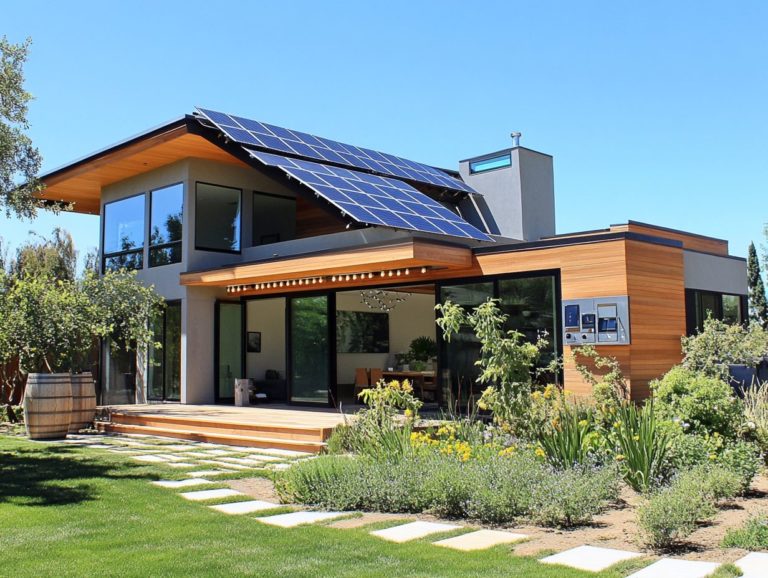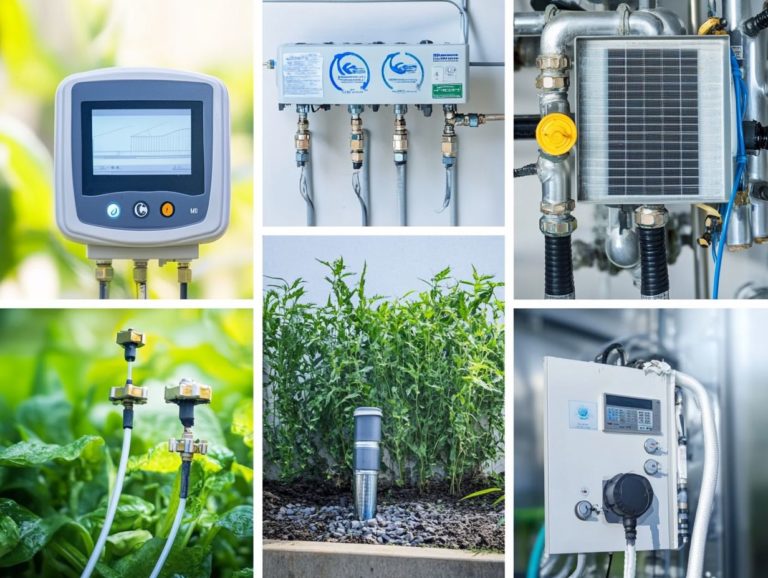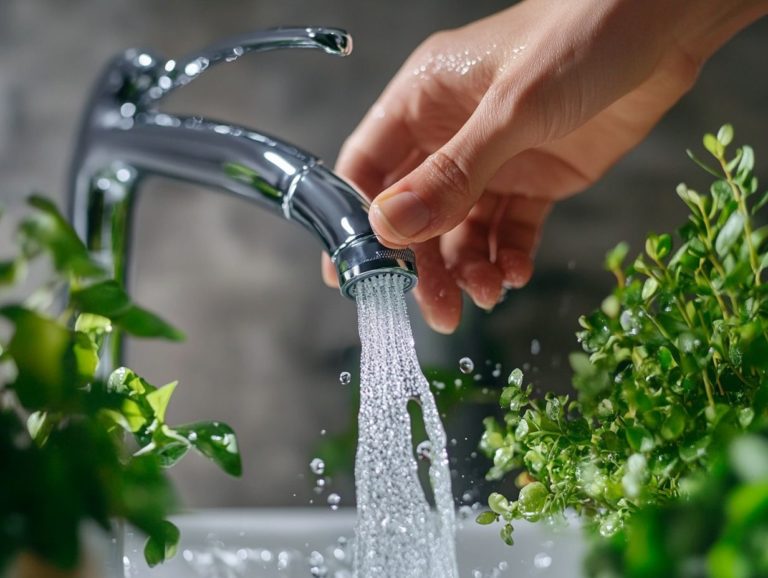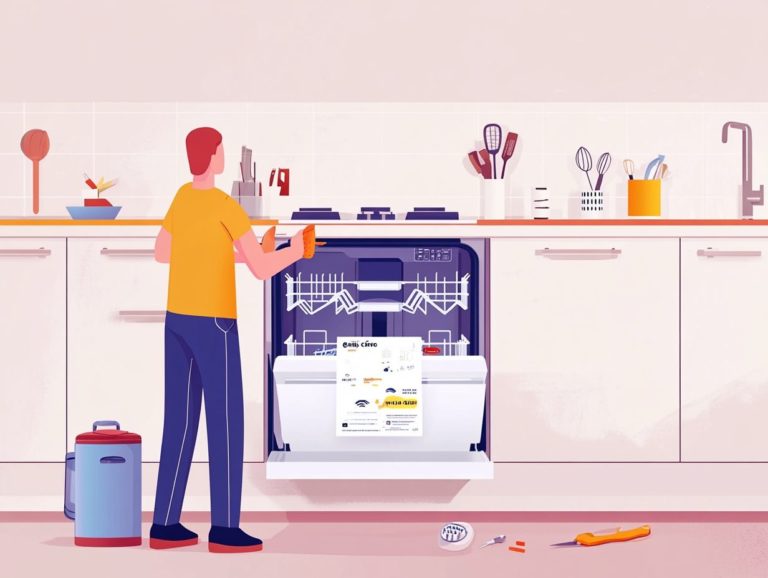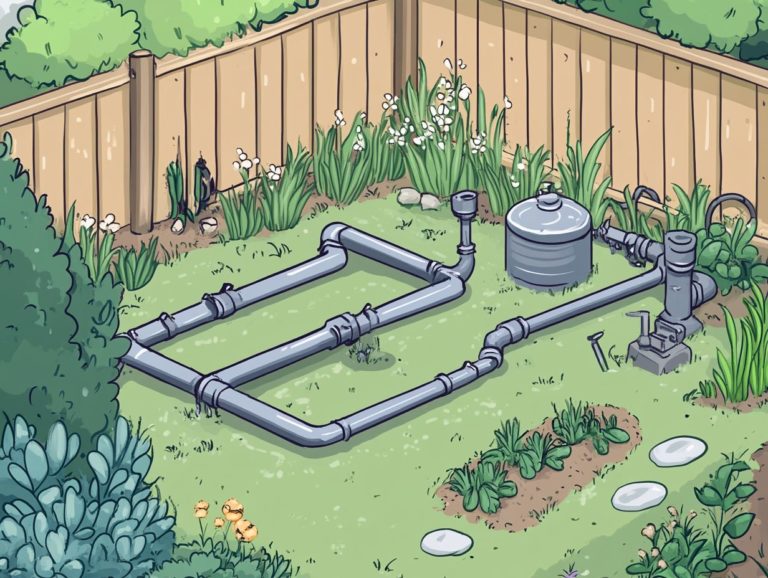How to Choose the Right Water Filter for Your Home
Choosing the right water filter for your home can feel daunting. With so many options available, it s essential to find the one that best suits your needs.
This guide breaks down the types of water filtration systems. It clarifies how each one works and highlights the key factors to consider when making your choice.
You’ll also see a comparison of popular brands and models. This will help you find the perfect match for your needs and budget!
Plus, we provide a simple guide for installation and maintenance. Keeping your water clean and safe is our priority.
Explore this resource to uncover the best choice for your home!
Contents
Key Takeaways:
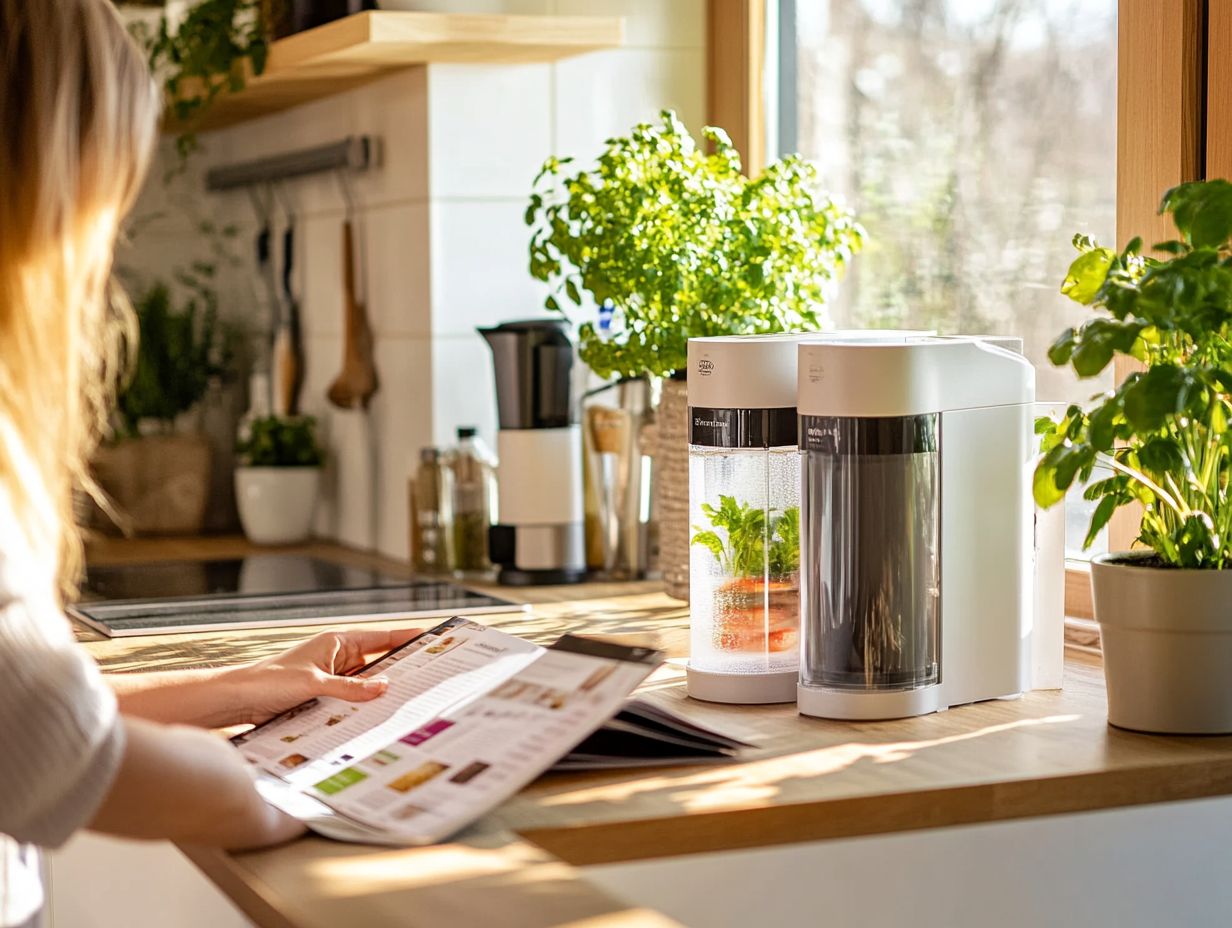
Consider your water quality and the contaminants that concern you. This ensures your filter effectively removes unwanted elements.
Think about your budget and maintenance needs. Some filters have higher initial costs but lower ongoing expenses.
Research various brands and models. Comparing features helps you make an informed decision.
Understanding Water Filtration Systems
Understanding water filtration systems is vital for homeowners. These systems are designed to remove contaminants from your water, ensuring every drop is safe.
Point-of-entry systems purify all water entering your home. In contrast, point-of-use solutions filter water at specific taps.
Many systems use advanced technologies, like activated carbon filters. These filters can absorb chlorine and other impurities, improving taste.
Reverse osmosis units use a special filter that blocks unwanted particles, including heavy metals and bacteria. This process provides thorough purification.
By grasping these systems, you can choose the best option for clean, safe drinking water.
Factors to Consider When Choosing a Water Filter
Choosing the right water filter requires careful thought. Start by checking your water quality for any specific contaminants.
Next, evaluate the filter size and flow rate to meet your household s needs. Consider long-term maintenance costs to ensure reliable water safety.
Water Quality and Contaminant Concerns
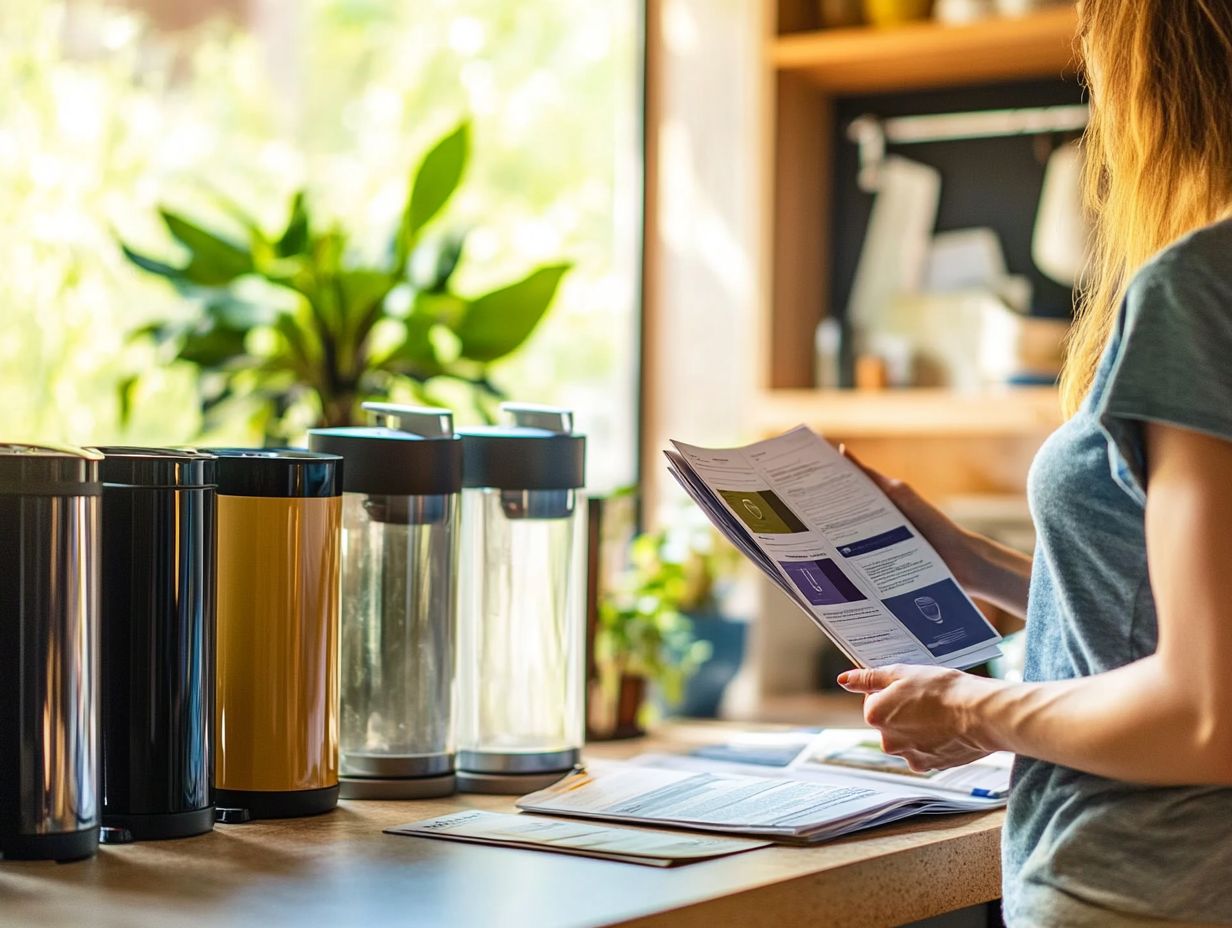
Water quality is crucial for ensuring that what you drink and use is safe. Contaminants like lead, chlorine, and microorganisms such as Cryptosporidium can pose serious health risks. This is why employing effective water treatment methods and regularly testing with a water test kit is essential.
The presence of these harmful substances can lead to various health issues. These include gastrointestinal disturbances, neurological problems, and even long-term chronic conditions.
Familiarizing yourself with the Environmental Protection Agency s (EPA) standards for drinking water gives you the power to recognize acceptable contaminant levels. It also encourages proactive measures to protect your health.
Regular water testing not only identifies contaminants but also informs you about the best removal techniques. For example, using filters can effectively eliminate chlorine, while ultraviolet light combined with proper filtration can significantly reduce Cryptosporidium levels.
This underscores the vital importance of both testing and treatment in maintaining optimal water quality.
Budget and Maintenance
When selecting a water filtration system, you re not just making a purchase you’re investing in your health and peace of mind! It s essential to weigh your budget alongside the ongoing maintenance costs associated with it, such as regular filter replacements and any plumbing modifications needed for optimal performance.
The initial investment can vary widely, depending on whether you opt for a straightforward pitcher filter or a more intricate reverse osmosis system, which is a process that removes impurities by pushing water through a semipermeable membrane.
Consider the recurring costs of filter replacements, which typically occur every six months to a year, depending on how much you use the system.
Developing a comprehensive budgeting plan that encompasses these recurring expenses and potential repairs from wear and tear is crucial. This way, you ensure that the system consistently delivers safe, clean drinking water for years to come.
Also, consider how your choice can affect your utility bills more efficient systems might save you money in the long run.
Top Water Filter Brands and Models
You ll find an impressive selection of popular water filter brands on the market, including Pentair, each offering a range of household water filters tailored to meet diverse needs.
Whether you re considering reverse osmosis systems, water softeners, or specific installation options like countertop filters, under-sink filters, or faucet-mounted filters, there s a solution designed to enhance your water quality perfectly.
Comparing Features and Performance
When you’re comparing water filtration systems, it s essential to evaluate features such as filter size, flow rate, and overall performance. This ensures you choose the best option to meet your household needs, especially if you re looking for energy-efficient filters that deliver optimal water quality without guzzling energy.
Understanding the importance of filter size is crucial, as it directly impacts the efficiency of contaminants removal. Larger filters often trap more impurities and may require less frequent replacements, which is a win-win.
Flow rate also plays a pivotal role, ensuring you have a steady supply of filtered water without those annoying long waits. By carefully assessing these attributes, along with performance metrics like lifespan and maintenance requirements, you can make informed decisions that align with your daily usage and environmental considerations.
This thoughtful approach ultimately enhances your overall water quality experience.
Installation and Maintenance of Water Filters
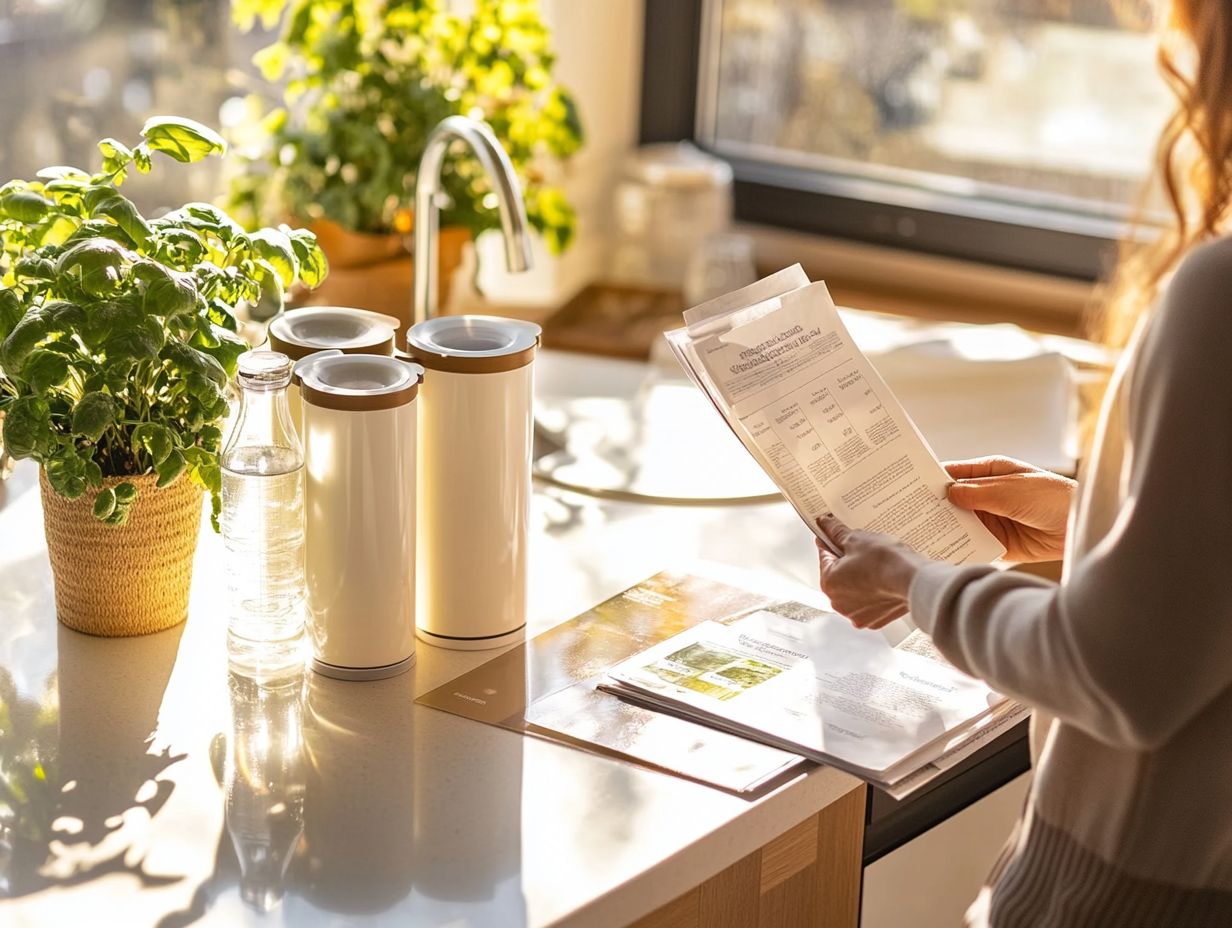
Proper installation and maintenance of water filters are essential for maximizing the performance and longevity of your water filtration system.
Depending on the system you choose, you may need to make some plumbing modifications. Additionally, committing to regular maintenance is crucial this means timely filter replacements and cartridge changes to ensure that your drinking water remains safe and clean.
Step-by-Step Guide and Tips
Installing a water filtration system can be a seamless process when you have the right step-by-step guide at your fingertips. It begins with assessing your home s plumbing and selecting the ideal location.
Properly connecting the system is crucial for effective filtration. Don t forget to incorporate essential maintenance tips for timely filter replacements this is key to maintaining optimal water quality.
Understanding the specific requirements of different filtration systems, like reverse osmosis, activated carbon, or under-sink units, is critical in this undertaking.
Start by reviewing your available space and water pressure to find the perfect fit. Gathering the necessary tools, such as wrenches and screwdrivers, will make the installation smoother.
Once you re set, connect the system by carefully attaching the inlet and outlet pipes while ensuring there are no leaks. Regularly check how well your filter is working and know when it s time for replacements.
Many systems require filter changes every six months to a year, ensuring you always have access to clean, refreshing water.
Frequently Asked Questions
Choosing a Water Filter
What factors should I consider when choosing a water filter for my home?
When choosing a water filter, consider your household’s water usage, water quality, budget, and the type of contaminants you want to remove. Also, think about the maintenance and installation process.
Types of Water Filters
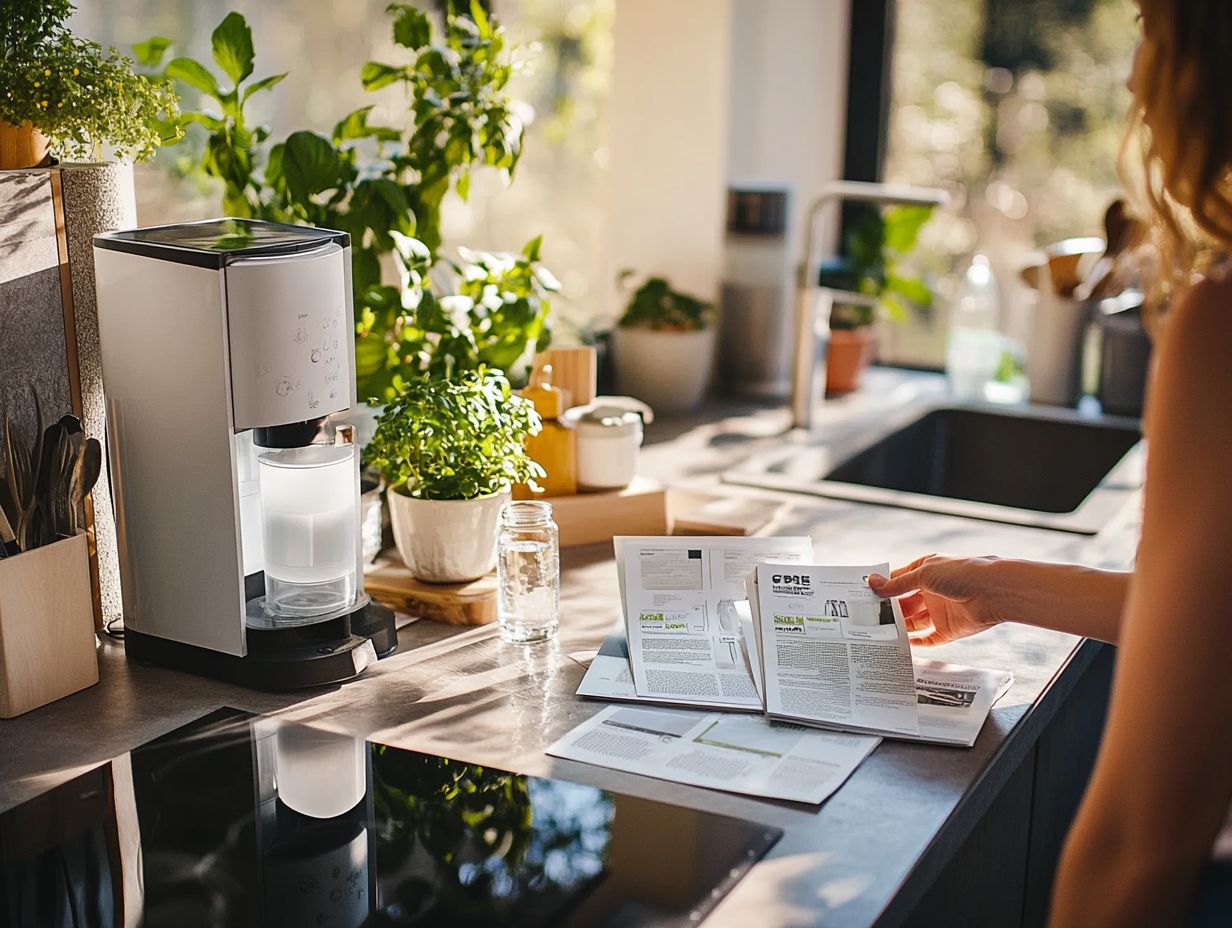
There are several types of water filters available, including activated carbon filters, reverse osmosis filters, UV filters, and ion exchange filters. Each has its own benefits and is designed to remove specific contaminants.
Water Quality Testing
How do I know what contaminants are in my water?
You can check your water quality report or have your water tested by a professional. Alternatively, use a home testing kit to determine what contaminants are present and which filter will be most effective.
DIY Installation
Can I install a water filter myself?
It depends on the type of filter and your DIY skills. Some filters, like faucet-mounted ones, are easy to install, while whole-house systems may require professional installation. It’s best to follow the manufacturer’s instructions for proper functioning.
Maintenance Requirements
What is the maintenance required for a water filter?
The maintenance required depends on the type of filter you choose. Some require regular replacement of cartridges, while others may need cleaning or UV light bulb replacements. Follow the manufacturer’s recommended maintenance schedule to keep your water fresh and clean!
Cost Expectations
How much should I expect to spend on a water filter for my home?
The cost of a water filter varies depending on the type, brand, and features. Prices can range from $20 for a faucet-mounted filter to thousands for a whole-house system. Consider your budget and the cost of replacement cartridges when choosing a filter.
Start your water filtration journey today and enjoy cleaner water!

